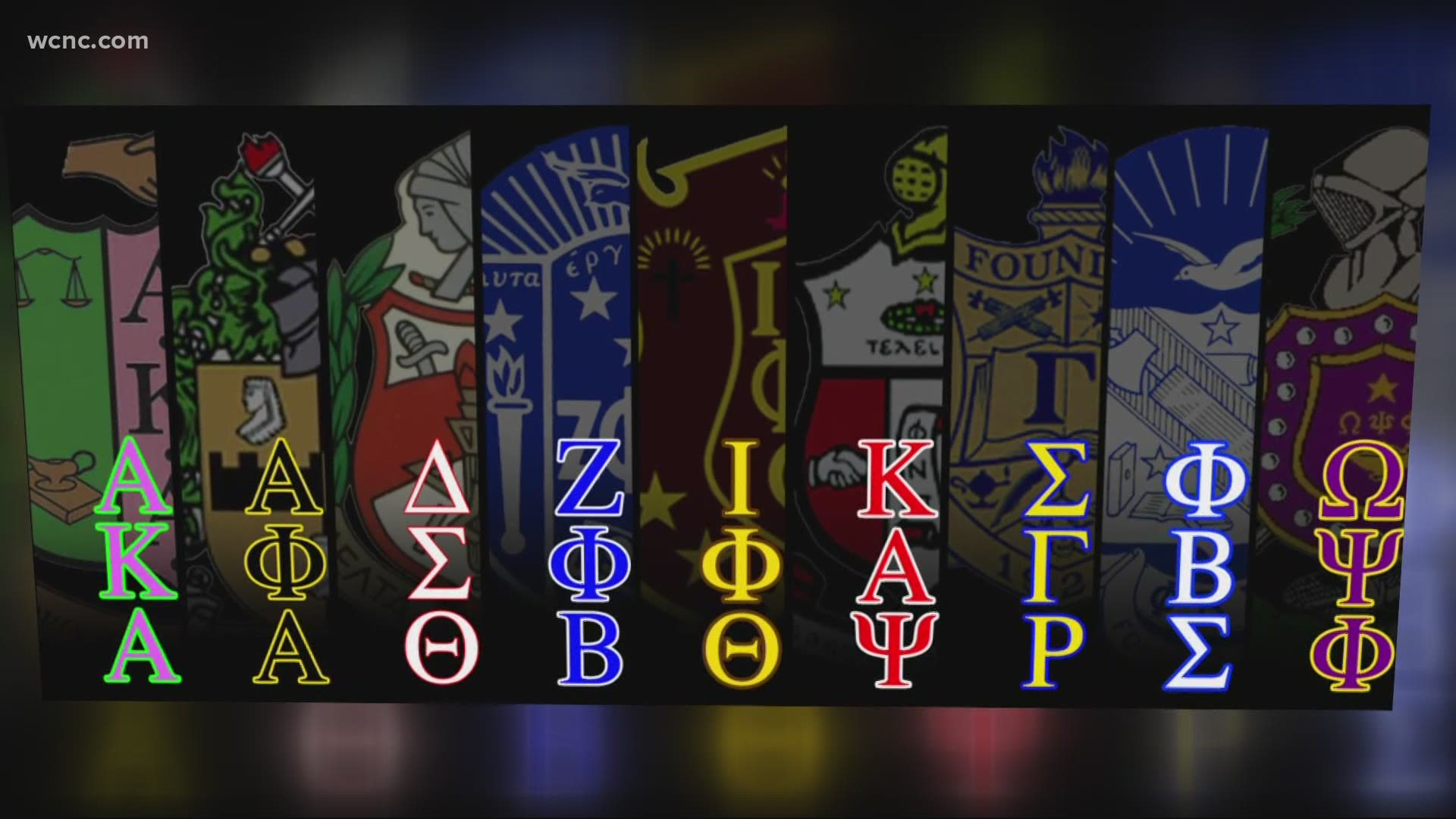CHARLOTTE, N.C. — Some famous people throughout history, like former first lady Michelle Obama, Dr. Martin Luther King, Jr., Al Roker and W.E.B. DuBois, all have one thing in common: They are members of Black Greek letter organizations.
The history of Black Greek letter organizations, like the one I’m a part of Alpha Kappa Alpha Sorority Incorporated, dates back to the early 1900s when African-American students were excluded from Greek organizations at predominately white institutions.
"At some point, there were a group of Black men who were trying to be part of an organization, and they needed votes, and one white vote meant they couldn’t be a part of the organization, so they decided to start their own,” Leland Howard, the president of the National Pan-Hellenic Council of Charlotte, explained.
The National Pan-Hellenic Council includes:
- Alpha Phi Alpha Fraternity, Incorporated
- Alpha Kappa Alpha Sorority, Incorporated
- Kappa Alpha Psi Fraternity, Incorporated
- Omega Psi Phi Fraternity, Incorporated
- Delta Sigma Theta Sorority, Incorporated
- Phi Beta Sigma Fraternity, Incorporated
- Zeta Phi Beta Sorority, Incorporated
- Sigma Gamma Rho Sorority, Incorporated
- Iota Phi Theta Fraternity, Incorporated
The National Pan-Hellenic Council brings all nine Black Greek letter organizations together for one common cause.
“We’re able to work together to ensure there’s change in the community," Howard said. "We work together to ensure that policies and social policies are being pushed."
Alpha Phi Alpha, the first Black Greek-letter fraternity, was founded in 1906 at Cornell University.
Alpha Kappa Alpha is the first Black Greek-letter sorority, and it was founded on the campus of Howard University in 1908.
Also called the "Divine Nine," these sororities and fraternities were founded on the principle of service, and that's a value still upheld to this day
“We’re out in the community," Howard said. "We’re helping with voter education. We’re helping with healthcare education ... We’re feeding the homeless. We’re out collecting supplies."
Over the years, African-Americans have joined Black Greek-letter organizations for a variety of reasons. I asked a few of my colleagues to find out why they joined.
Billie Jean Shaw is a WCNC Charlotte reporter and a member of Delta Sigma Theta.
“My mother and my aunts are all members of Delta Sigma Theta Sorority, Incorporated," Shaw said. "And my uncle is a member of Omega Psi Phi, so growing up, I saw the service. I saw them being dedicated to giving back to their community."
Sean Murray is a WCNC Charlotte director and a member of Kappa Alpha Psi.
“My stepdad is a member of Kappa Alpha Psi, so that’s all I ever knew," Murray said. "That’s all he ever told me about."
Jerel Palmer is a WCNC Charlotte photojournalist and a member of Phi Beta Sigma.
“The Sigmas ... helped me move in," Palmer said. "They kind of sheltered me. They guided me. So, in my head, if I was to ever pledge, it would be probably that because that’s what stood out to me the most."
Kevin Wardlaw is another WCNC Charlotte photojournalist and a member of Omega Psi Phi.
“They kind of adopted me as a little brother as I came in as a freshman, and I just admired the respect that they demanded from the team and the respect they got on campus, and it was something I wanted to be a part of, ” Wardlaw said.
Howard believes some of the Black fraternities and sororities are underestimated, but that inspires the members instead of discouraging them.
"We enjoy being underestimated because when we walk into spaces and people have doubted us," Howard said. "We’re showing beyond compare that we’re ready, we’re excited, and that we have been leading for a long time. It’s just a matter of people recognizing how great we are."

